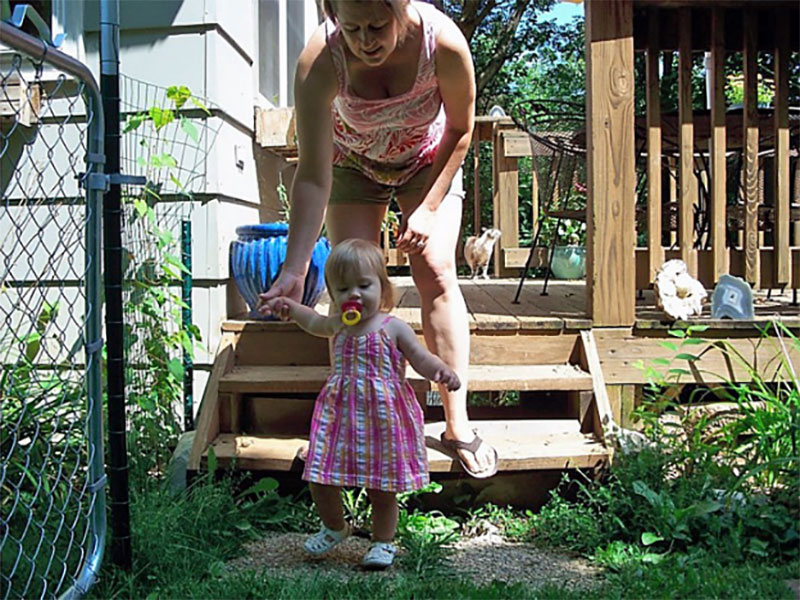Math skills for toddlers:
- Sorting
- Comparing
- One-to-one correspondence
- Shapes
- Space
- Problem-solving
- Patterns
- Time
- Number sense and counting
Wow! Did you know your toddlers were doing so much math? When she dumps the crate of connecting blocks and lines them up in a long line on the floor, she is creating a pattern and exploring the space in her environment. At clean-up time, an older toddler might put the toy cars in one crate, and the blocks in another crate. When she does this, she is sorting. You can encourage math development in younger toddlers by showing them how you use math in your daily experiences, such as sorting the laundry by color, or counting the plates for the children at lunch time. During play, sort toys by color, or show her one-to-one correspondence by playing the “one-for-you-one-for-me” game.
Provide toys, books, and art projects that have squares, circles, triangles, and rectangles. Encourage your toddler to solve problems throughout the day with toys that must be poked, pulled, twisted, or opened to work.
It’s about time!
To help your toddler learn about time, try to keep a consistent daily schedule. He won’t be able to read the clock, but he’ll know that after you read him a book, it’s time for a nap. Talk to your toddler about the past, present, and future. For example, say to him, “We’ve just cleaned up your toys. Now, we’ll read a book. Then, you’ll take a nap.” This is important groundwork for learning to tell time.
Young children also learn to feel safe and secure when they begin to understand what to expect next. Talking about what to expect can also help alleviate behavior problems during transition times.
Science and discovery
Science skills are closely related to math skills. Here is a list of science skills your toddlers explore:
- Their bodies
- Observing
- Sorting
- Comparing
- Mixing
- Experiencing the environment (temperature, light, color, texture)
- Cause and effect
Toddlers experiment with science in many different ways! They explore and learn about their bodies through movement, touch, sight, sound, smell, and listening—and potty training. Toddlers sort and compare toys, comfort items, and food. Some toddlers practice cause and effect by screaming for food or toys—they have trained their caregivers to come when they scream! (If you need help changing this, check out Behavior Management for Toddlers.)
The heat of a summer day, the cool of fall, and the chill of winter teach your toddlers about seasons and temperature. Always protect your children from the elements, but be sure they explore the outdoors as much as possible. They will begin to notice that the sun is out during the day and that the sky turns dark at night. They will start to notice how insects and animals move, act, and eat—especially if there is a pet in the house or classroom. All of these activities encourage development of basic science concepts.


